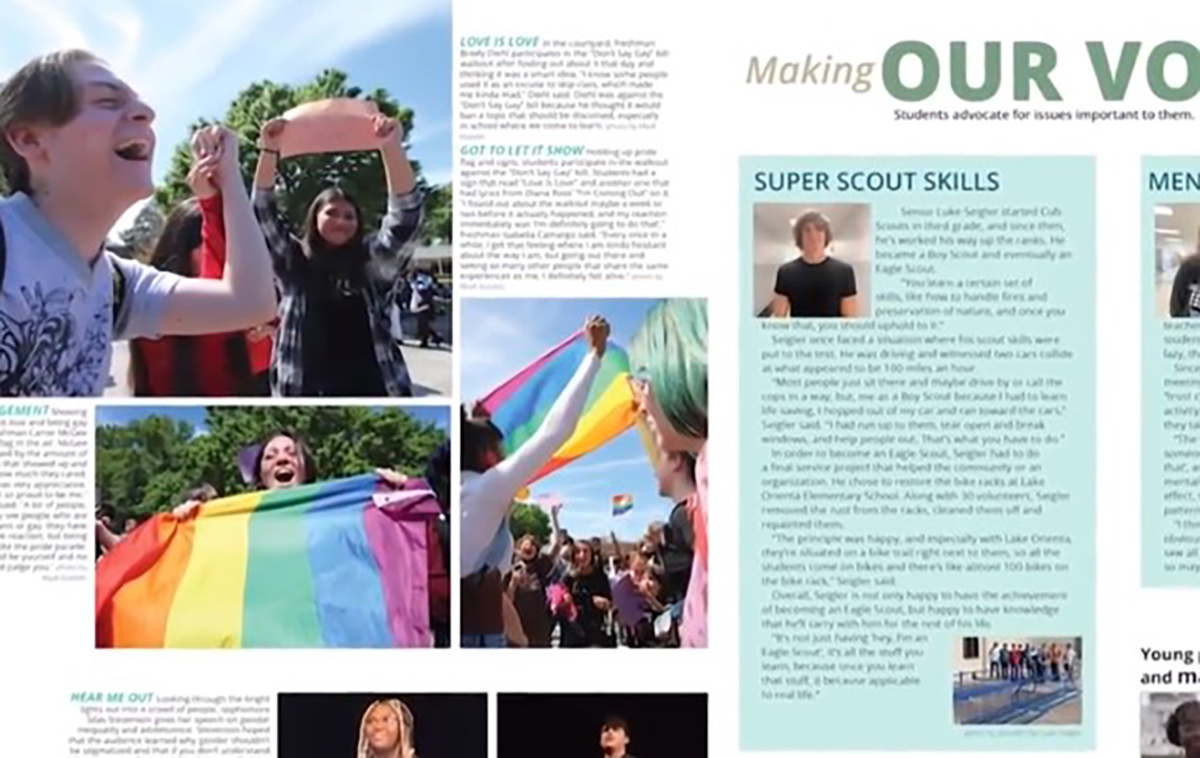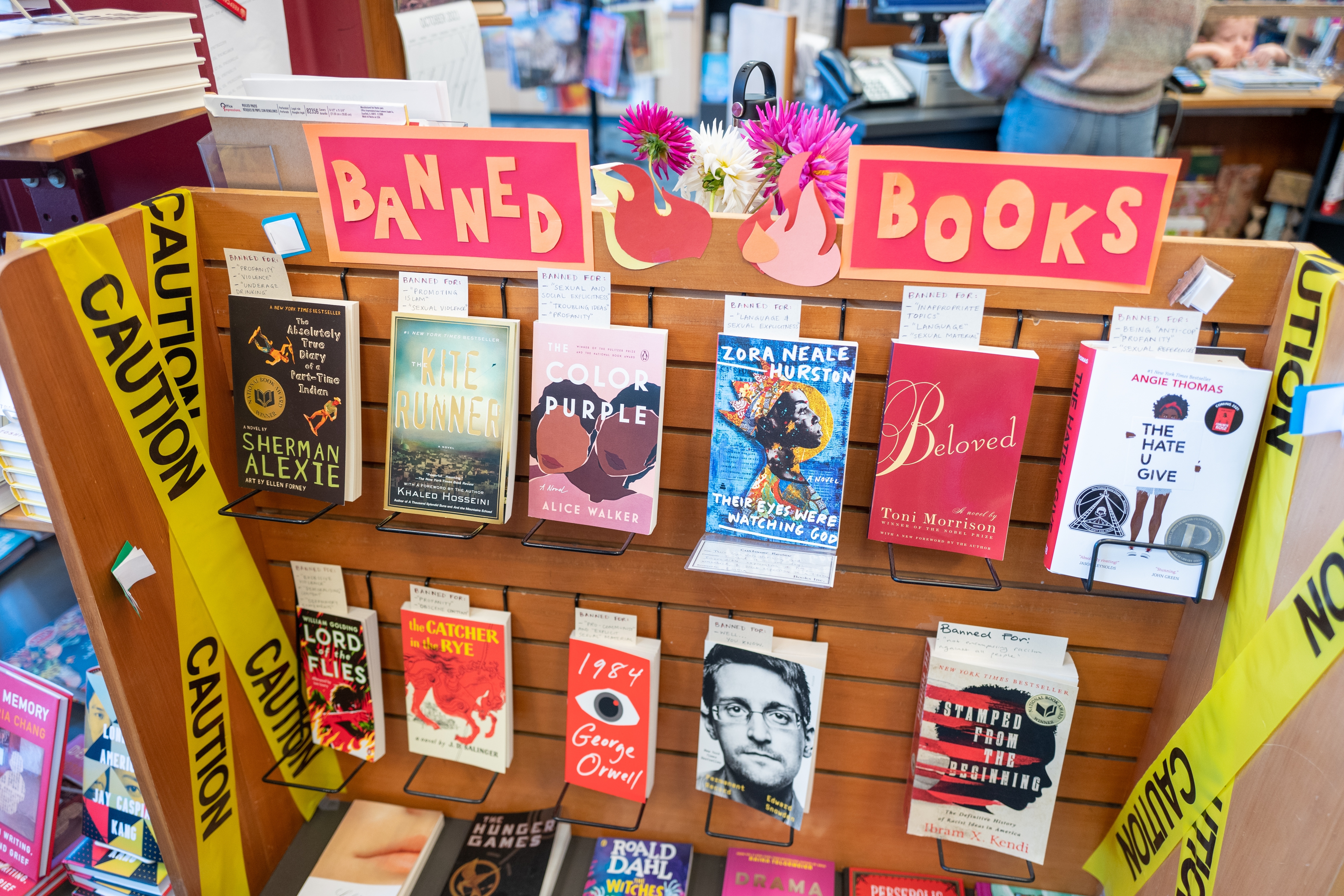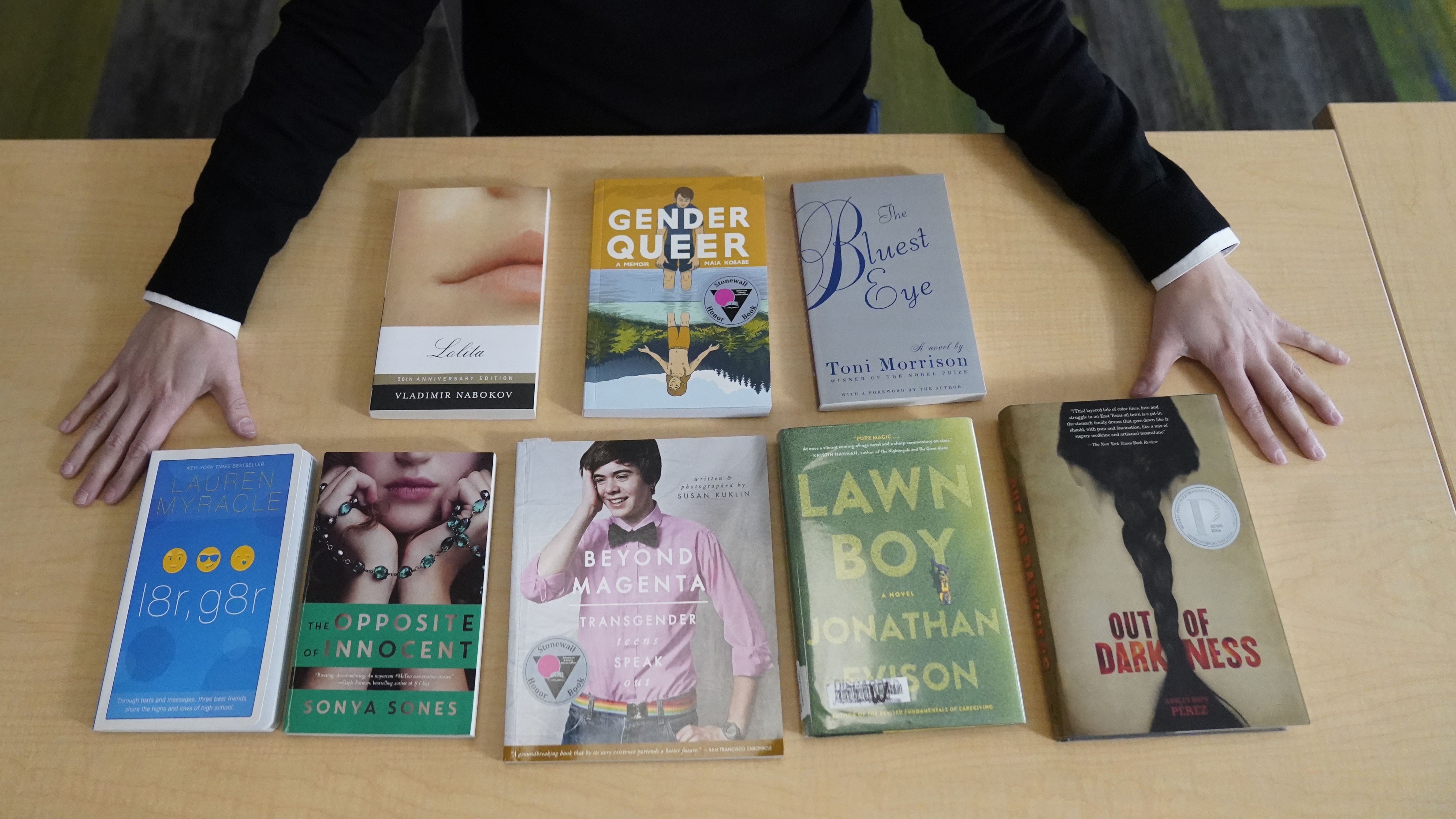A new report published by PEN America, an organization dedicated to supporting writers and free speech, found that there was a "flood of book bans" nationwide over the course of the 2021-2022 school year.
The report also found that the bans are the result of "increasing organization of groups" formed specifically to impose restrictions on which books children can access, often targeting LGBTQ- and race-related content.
PEN America warns that book banning efforts are by no means over, instead "continuing as the 2022–23 school year begins too."
Here are some highlights from the report, which you can read by clicking here.
Get San Diego local news, weather forecasts, sports and lifestyle stories to your inbox. Sign up for NBC San Diego newsletters.
Book Bans by the Numbers
A total of 2,532 bans were enacted around the country during the period starting in July 2021 and ending at the end of June 2022.
Those bans included "1,648 unique book titles," the report said, and a single title's ban "could mean anywhere from one to hundreds of copies are pulled from libraries or classrooms in a school district."
PEN America collected data and organized it into an Index of School Book Bans. The index also includes information about the type of ban -- be it in a classroom, school district or library -- as well as the state and district in which the ban took place.
A total of 32 states have book bans, in a total of 138 districts, affecting nearly 4 million students.
Texas had the most bans of any state, with 801 bans in 22 districts. Florida followed Texas in second place, with 566 bans in 21 districts, followed by Pennsylvania with 457 bans in 11 districts.
Here are the most banned books for the 2021-2022 school year, according to PEN America:
- Gender Queer: A Memoir by Maia Kobabe, banned in 41 districts nationwide
- All Boys Aren’t Blue by George M. Johnson, banned in 29 districts
- Out of Darkness by Ashley Hope Pérez, banned in 24 districts
- The Bluest Eye by Toni Morrison, banned in 22 districts
- The Hate U Give by Angie Thomas, banned in 17 districts
- Lawn Boy by Jonathan Evison, banned in 17 districts
- The Absolutely True Diary of a Part-Time Indian by Sherman Alexie, banned in 16 districts
- Me and Earl and the Dying Girl by Jesse Andrews, banned in 14 districts
- Crank by Ellen Hopkins, banned in 12 districts
- The Kite Runner by Khaled Hosseini, banned in 12 districts
- l8r, g8r by Lauren Myracle, banned in 12 districts
- Thirteen Reasons Why by Jay Asher, banned in 12 districts
- Beloved by Toni Morrison, banned in 11 districts
- Beyond Magenta: Transgender Teens Speak Out by Susan Kuklin, banned in 11 districts
- Drama: A Graphic Novel by Raina Telgemeier, banned in 11 districts
- Looking for Alaska by John Green, banned in 11 districts
- Melissa by Alex Gino, banned in 11 districts
- This Book Is Gay by Juno Dawson, banned in 11 districts
- This One Summer by Mariko Tamaki and Jillian Tamaki, banned in 11 districts
Many of the authors have won literary awards, and at least one author was a Nobel Laureate.
An additional 139 bans have already taken effect between July 2022 and the report's publication on Sept. 19, 2022.
Who is Banning Books and Why?
As was the case with the American Library Association's list of the most banned and challenged books in 2021, many of the books PEN America tracked were banned because of their focus on either LGBTQ identity and history, or on race and racism.
"Complaints about diversity and inclusion efforts have accompanied calls to remove books with protagonists of color, and numerous books have been targeted for simply featuring LGBTQ+ characters," the report said. "Nonfiction histories of civil rights movements and biographies of people of color have been swept up in these campaigns."
The report also notes that many of the bans on books featuring LGBTQ characters or stories "are frequently drawing on long-standing, denigrating stereotypes that suggest LGBTQ+ content is inherently sexual or pornographic."
At least 50 groups have been involved in pushing for these kinds of book bans at the national, state and local level, according to PEN America.
Eight of those groups have local or regional chapters totaling up to around 300 in number, and a majority of the 50 groups formed in 2021 or later.
PEN America drew a clear distinction between the efforts of these groups and not the result of a single parent concerned after their child raises a question about a book at the dinner table, calling the wave of bans "deeply undemocratic."
In their efforts to ban books in school libraries and classrooms, the groups the report ties to the wave of new bans often called books "obscene," using the word in a way that varies wildly from its traditional legal use as determined by the Supreme Court of the United States.
"At least 20 percent of the book bans enacted in the 2021-22 school year could be directly linked to the actions of these groups, with many more likely influenced by them," the report said.
The book bans are often tied to movements against mask mandates and critical race theory, and often tout mission statements that focus on parents' rights and religious freedoms alongside conservative viewpoints, the report found.
"These groups share lists of books to challenge, and they employ tactics such as swarming school board meetings, demanding newfangled rating systems for libraries, using inflammatory language about “grooming” and “pornography,” and even filing criminal complaints against school officials, teachers, and librarians," PEN America explained.
Also according to the report, an estimated 40% of the bans listed in PEN America's Index of School Book Bans were "connected to either proposed or enacted legislation, or to political pressure exerted by state officials or elected lawmakers to restrict the teaching or presence of certain books or concepts."
To read the entire PEN America report, click here.




